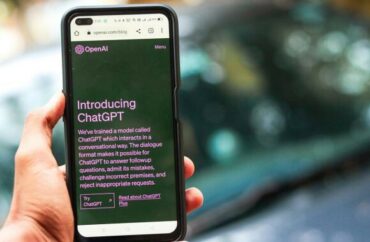Using AI to write essays can impair brain function: MIT study | The College Fix

AI users ‘performed worse than their counterparts … at all levels,’ study reveals
Prolonged use of artificial intelligence for essay-writing tasks may weaken brain function and critical thinking skills, researchers at the Massachusetts Institute of Technology recently found.
Researchers studied 54 individuals aged 18 to 39, separating them into three groups. Each group was tasked with writing several SAT-style essays using ChatGPT, Google, or no online tools at all, the study specified.
However, for the fourth assignment, the ChatGPT group had to rewrite one of their essays without AI, relying solely on their own thinking, while the previously AI-free group was instructed to use ChatGPT for the task.
In the last session, participants who transitioned from using AI to writing without it displayed reduced brain connectivity and lower levels of cognitive engagement than their counterparts.
The researchers recorded participants’ brain activity using electroencephalography to assess the cognitive effort they exerted.
“EEG analysis presented robust evidence that LLM, search engine and brain-only groups had significantly different neural connectivity patterns, reflecting divergent cognitive strategies,” the study reads.
Those who used ChatGPT “consistently underperformed at neural, linguistic, and behavioral levels.”
What’s more, the ChatGPT users produced highly similar work that showed little originality.
Meanwhile, those who moved from writing without AI to using it showed improved memory recall and increased mental engagement.
“As the educational impact of LLM use only begins to settle with the general population, in this study we demonstrate the pressing matter of a likely decrease in learning skills based on the results of our study,” the researchers wrote.
“[O]ver the course of 4 months, the LLM group’s participants performed worse than their counterparts in the Brain-only group at all levels,” they wrote.
Further, the use of AI leads to “superficial engagement,” weakens critical thinking skills, and can “prevent users from attempting any independent problem solving.”
“The reduced level of cognitive engagement could also contribute to a decrease in decision-making skills and in turn, foster habits of procrastination and ‘laziness’ in both students and educators,” the researchers wrote.
While the study has not yet been peer-reviewed, MIT research scientist Nataliya Kosmyna believed it was important to share the findings quickly to raise awareness that students’ growing dependence on AI could come at the cost of long-term brain development, TIME reported.
“What really motivated me to put it out now before waiting for a full peer review is that I am afraid in 6-8 months, there will be some policymaker who decides, ‘let’s do GPT kindergarten.’ I think that would be absolutely bad and detrimental,” she told the outlet. “Developing brains are at the highest risk.”
Kosmyna also said education on how students should use these tools is critical, as the brain needs to develop skills without them.
“We need to have active legislation in sync and more importantly, be testing these tools before we implement them,” she said.
MORE: ChatGPT earns B in college engineering course, U. Illinois study finds
IMAGE CAPTION AND CREDIT: Person using AI chatbot; Sanket Mishra/Canva Pro
Read More
Like The College Fix on Facebook / Follow us on Twitter
